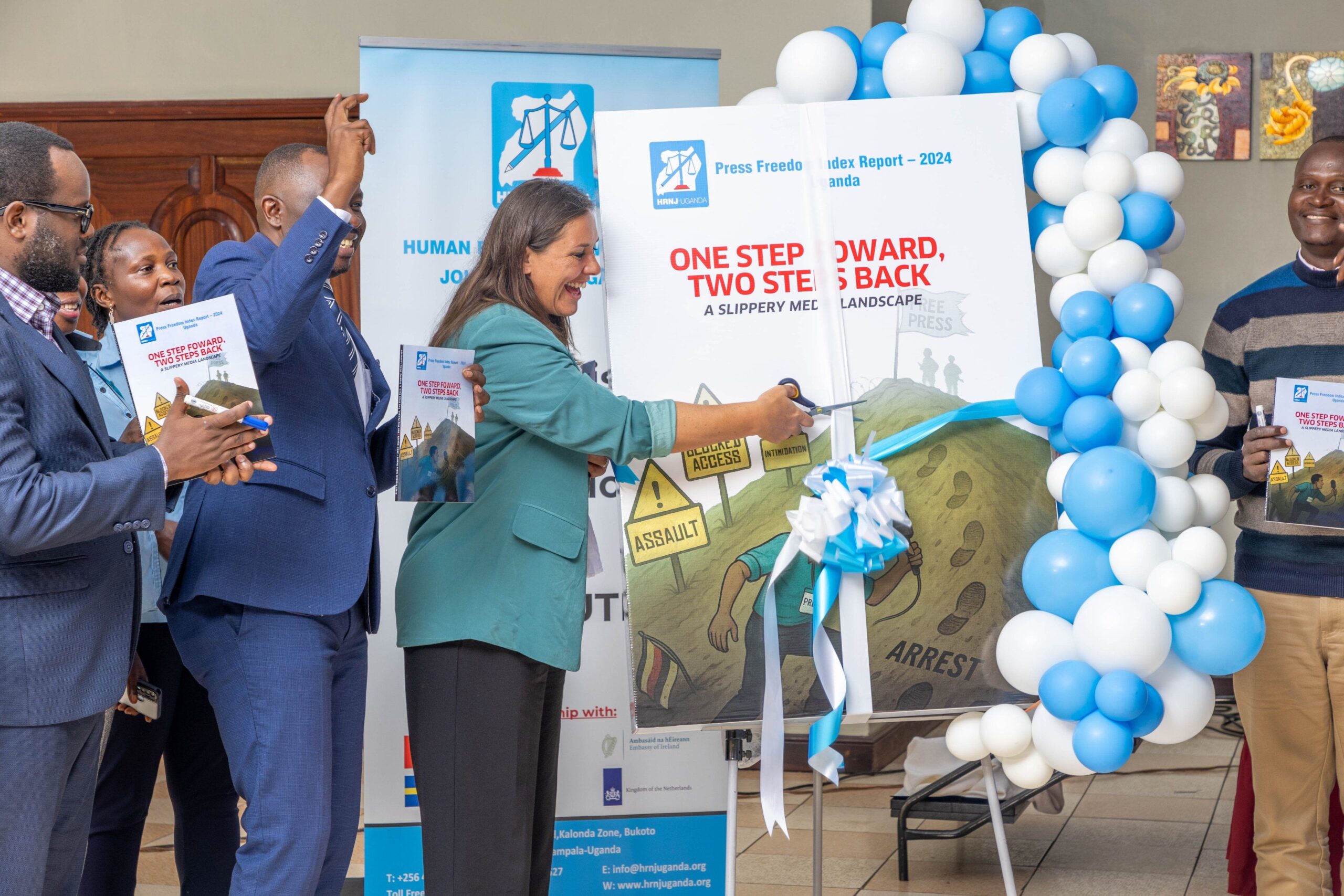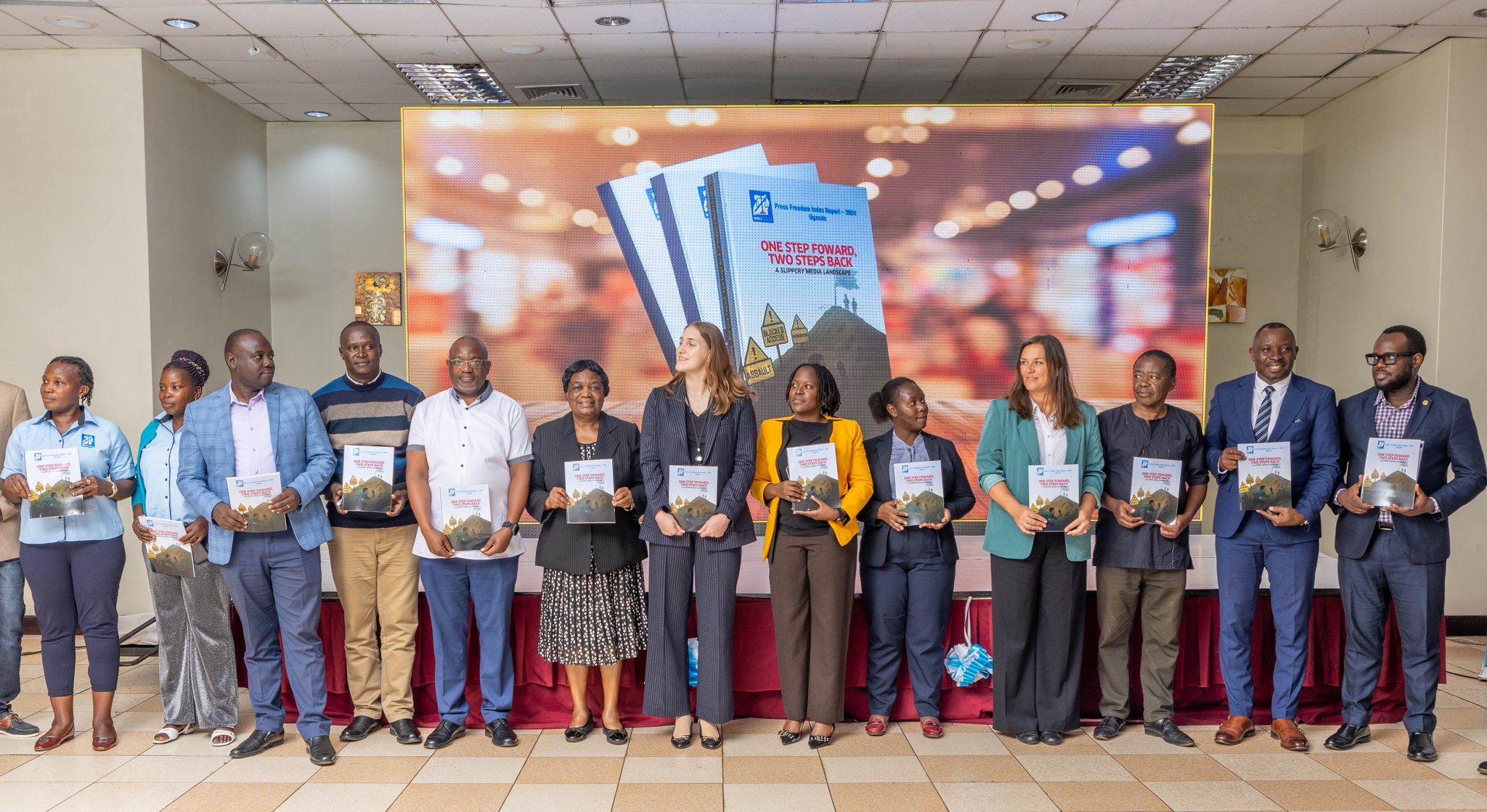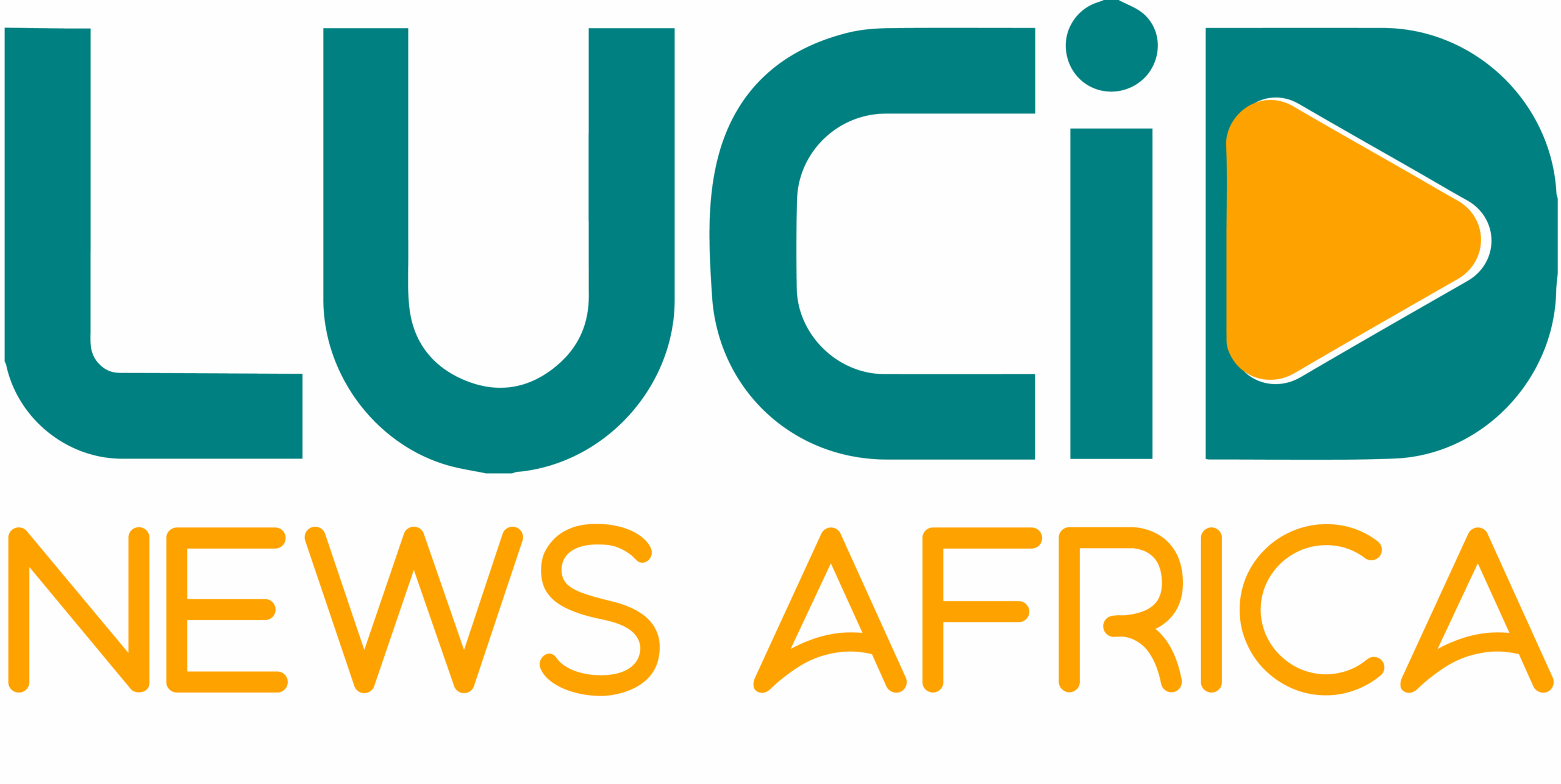Uganda’s media on a tightrope: 2024 report reveals a journalistic landscape in flux

Kirstine Primdal Sutton, Team Leader for the Program on Accountability, Civic Engagement, and Rights at the Royal Danish Embassy, signs the dummy copy of the Press Freedom Index Report 2024 – Uganda. Photo: HRNJ
A new report by the Human Rights Network for Journalists-Uganda (HRNJ-Uganda) offers a sobering yet hopeful snapshot of press freedom in the country. Titled “One Step Forward, Two Steps Back: A Slippery Media Landscape”, the 2024 Press Freedom Index doesn’t shy away from the hard truths, but it also spotlights a resilient media community committed to truth despite growing headwinds.
This year’s report, the 16th of its kind, reveals a paradoxical media environment. On one hand, Uganda’s judiciary reaffirmed journalists’ constitutional rights in a landmark ruling a rare but welcome victory for press freedom. On the other, journalists across the nation continued to face significant challenges, from regulatory crackdowns to pockets of violence that threaten to cast a shadow over Uganda’s democratic progress.
A year of mounting pressure
Uganda’s media practitioners recorded 110 press freedom violations in 2024, a slight drop from 122 in 2023. But numbers only tell part of the story. This was a year marked by restricted access, legal bottlenecks, rising digital threats, and economic strain all of which have made the job of journalism more complex than ever.

In May, a public funeral in Lwengo became the unexpected scene of a controversial incident when journalists covering the event were jostled and manhandled by private security linked to an opposition figure. Though condemned by civil society and media unions, the incident served as a reminder that press freedom is a shared responsibility across the political divide.
In Parliament, a heated session over the Coffee Amendment Bill saw reporters locked out mid-proceedings, highlighting concerns around transparency. While security cited procedural confusion, the move sparked pushback from the Uganda Parliamentary Press Association, who launched a short-lived boycott.
Meanwhile, the Uganda Communications Commission (UCC) took regulatory action against 11 radio stations for failing to meet ethical and technical standards a decision met with mixed reactions from media freedom advocates, some of whom saw it as necessary discipline, others as excessive.
Digital dilemmas and technological tremors
On the digital front, the report notes that social media continued to empower both watchdog journalism and public accountability, particularly around corruption and governance. Yet, the same platforms became breeding grounds for misinformation and cyberattacks. A notable data breach at Next Media and a Sudanese-linked hack targeting telecom infrastructure underscored how vulnerable Uganda’s media remains in the digital age.
The introduction of artificial intelligence (AI) tools in content creation also sparked ethical debate, with calls growing louder for a national AI policy that safeguards journalistic integrity while embracing innovation.
A profession under pressure
Economically, it was a trying year for the industry. Nation Media Group’s layoff of 600 staff sent ripples across the sector, with media houses tightening budgets and freelancers facing increasingly uncertain prospects. Female journalists, in particular, faced additional hurdles from gender-specific harassment to limited career advancement.
Mental health concerns also took centre stage. With burnout and trauma on the rise, HRNJ-Uganda urged for trauma-informed training and access to psychosocial support for journalists working in hostile environments.
A path forward
The report is not just a mirror, it’s a roadmap. Among its key recommendations:
- For Government & Parliament:
- Establish an independent press oversight body
- Provide economic relief and incentives to struggling media outlets
- Develop a National AI policy to regulate ethical media tech use
- For the Judiciary:
- Adopt a Media Access Policy for courts
- Appoint liaison officers to ease journalist-court relations
- For Media Houses & Associations:
- Enforce minimum employment standards
- Introduce mental wellness programs
- Offer training in conflict-sensitive reporting and digital security
- For Civil Society & Donors:
- Fund investigative journalism fellowships
- Launch fact-checking campaigns and media literacy programs
- Establish a rapid-response legal aid unit for threatened journalists

Hope in resilience
Despite the turbulence, Uganda’s journalists continue to rise to the challenge. Whether reporting from the steps of Parliament or navigating digital minefields, they remain committed to serving the public interest. Their courage is both humbling and inspiring.
As Uganda approaches the 2025 election season, the stakes are only set to grow. If history is any guide, election years tend to bring heightened scrutiny and sometimes suppression of the media.
Yet this moment also presents an opportunity.
The call to action is clear, media freedom must not be optional. It is the lifeblood of democracy, the voice of the people, and the watchdog of accountability.
Let us not wait until the lights go out. Let us act together.




